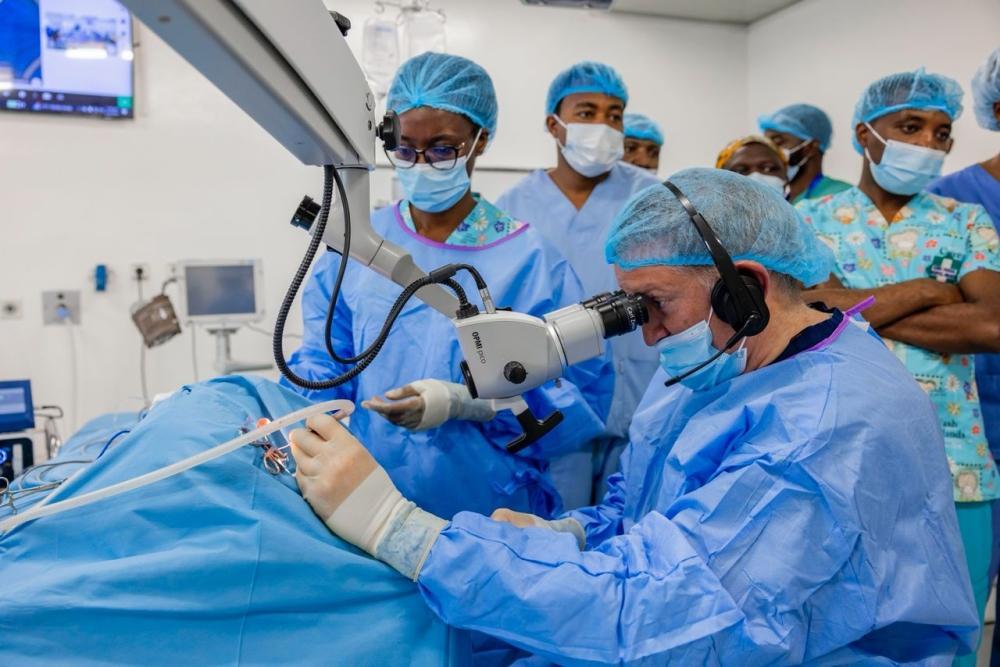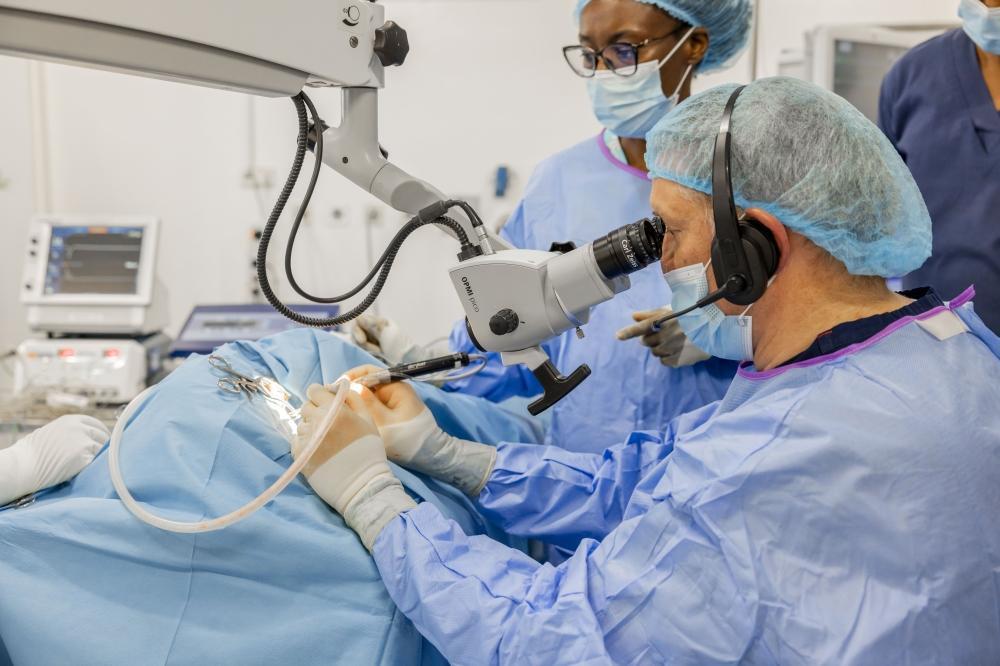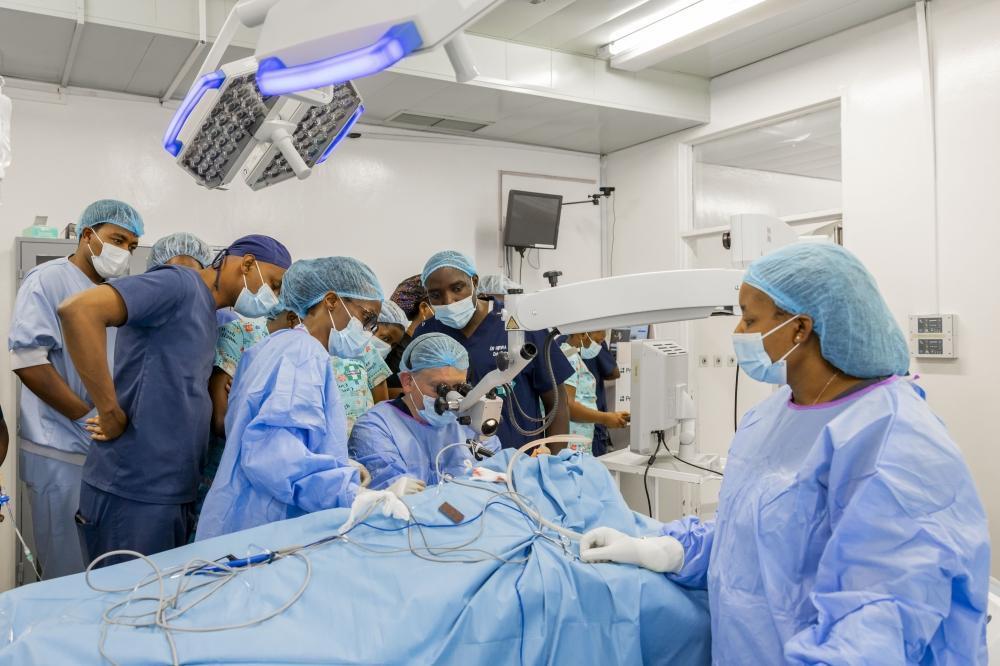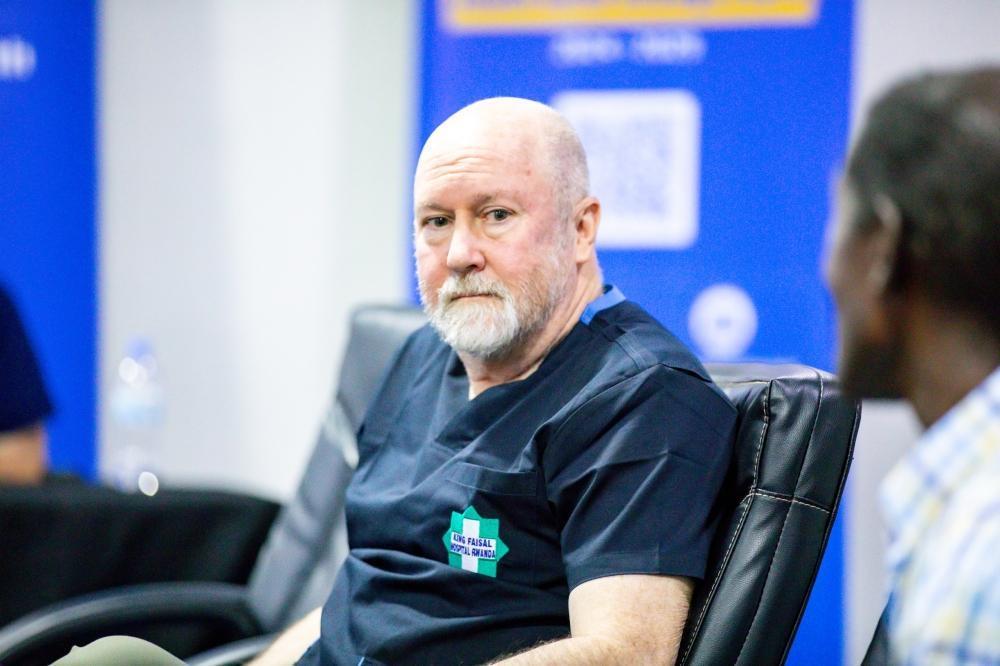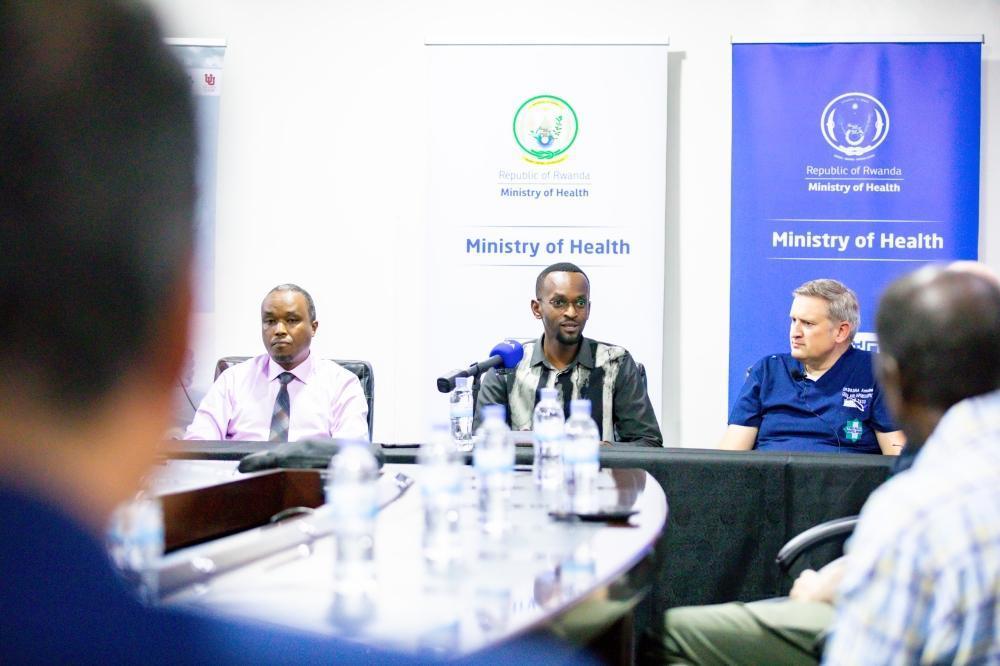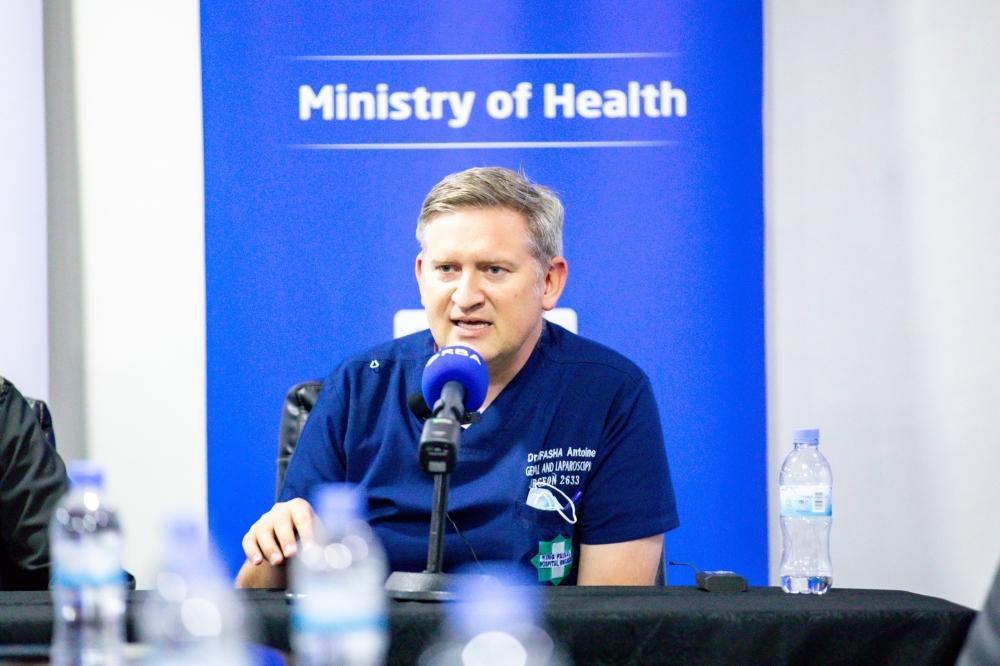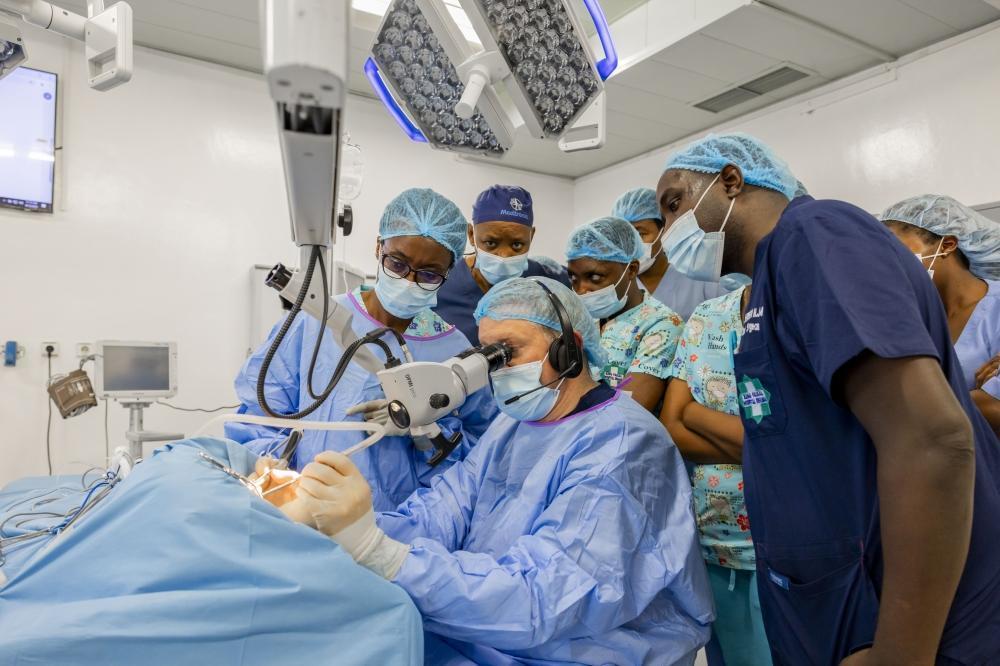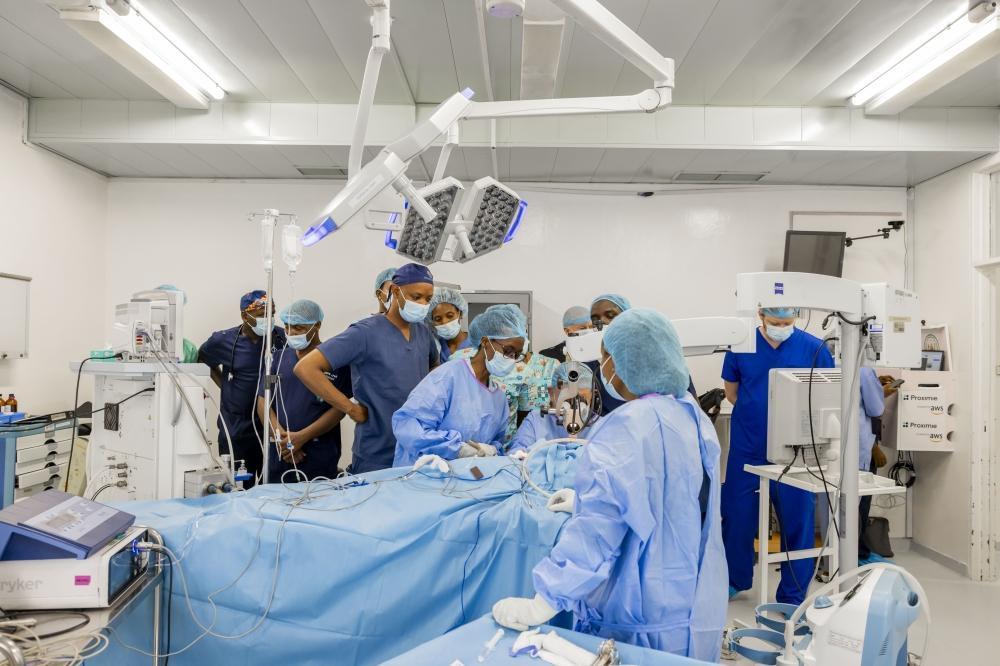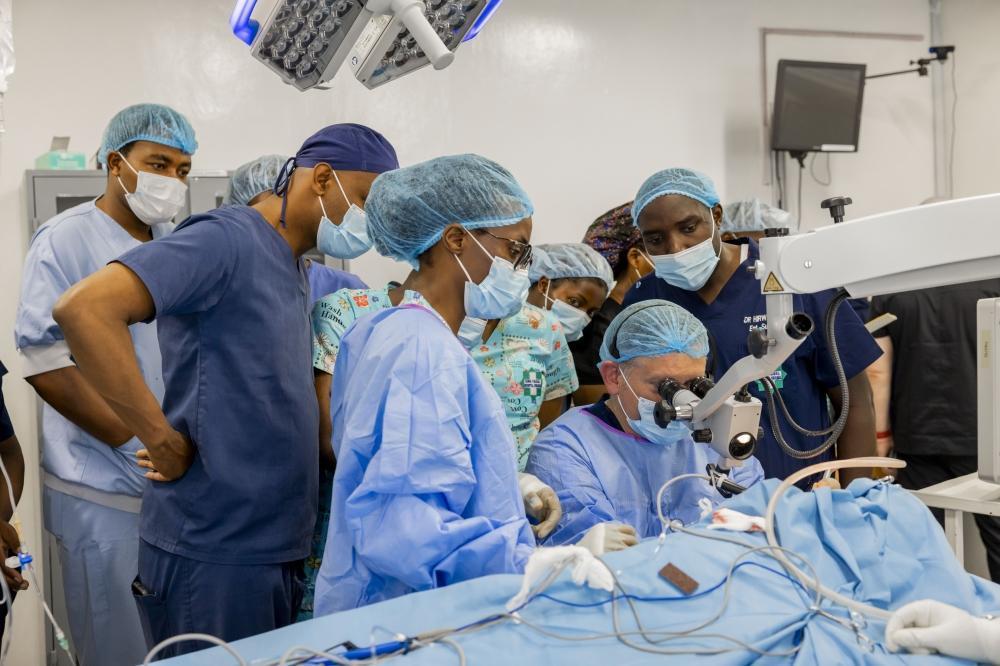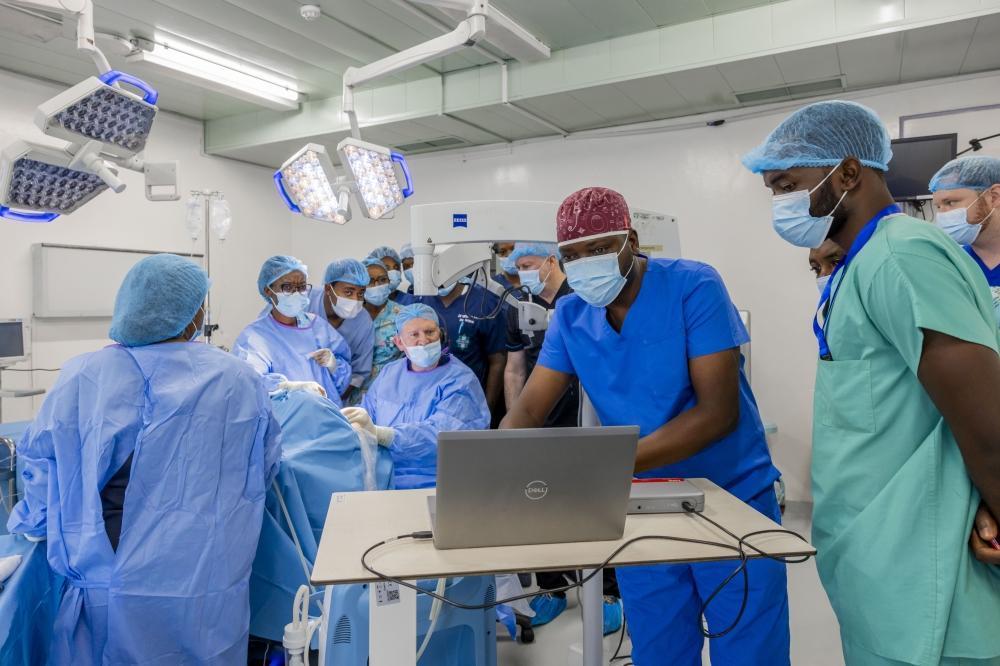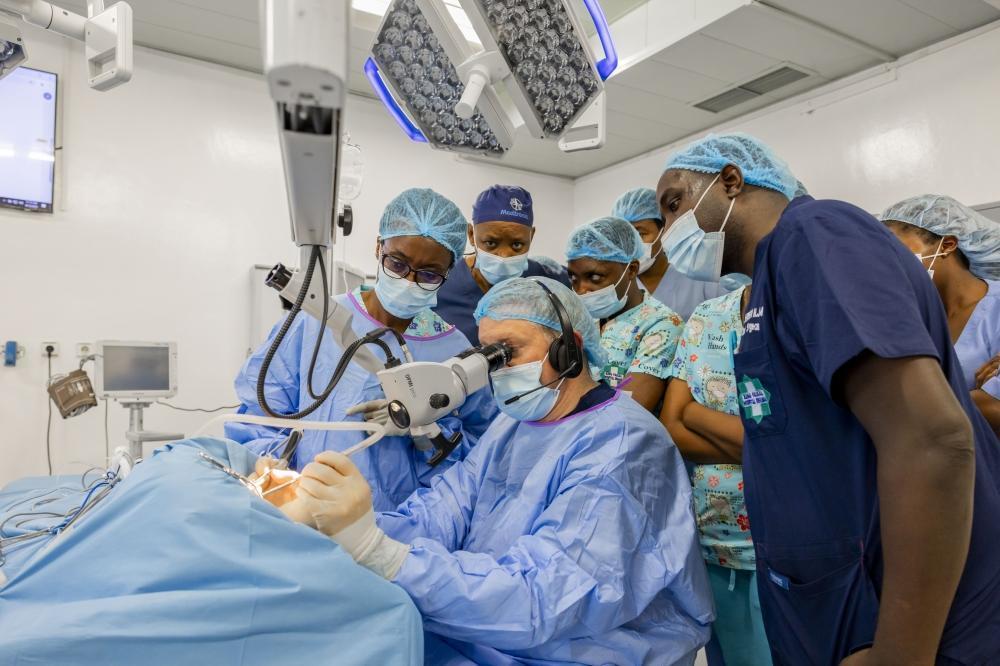Africa-Press – Rwanda. For the first time, Rwanda on Tuesday, August 12, performed cochlear implant surgeries that restore hearing for people with severe auditory impairment.
The surgeries, performed free of charge at King Faisal Hospital, with the support from Dr. Richard Gurgel, an Ear, Nose, and Throat (ENT) surgeon from the University of Utah, USA, aim to restore hearing for 10 Rwandan children with severe hearing impairment.
A cochlear implant is a surgically placed electronic device that helps people with severe to profound hearing loss perceive sounds.
The cochlea, a part of the inner ear shaped like a snail shell, normally converts sound into electrical signals that the brain interprets as hearing.
“During the implant procedure, we make a small incision behind the ear to place the device and insert an electrical wire into the cochlea,” explained Dr Gurgel, at news briefing on Tuesday. “This wire bypasses the damaged parts and directly stimulates the hearing nerve, restoring the sensation of hearing in a way that differs fundamentally from hearing aids, which simply amplify sounds.”
While cochlear implants benefit adults, the mission in Rwanda focuses primarily on young children, as early intervention has the greatest impact on speech, language, and overall development, he explained.
“Hearing loss is one of the most isolating medical conditions,” Dr Gurgel said. “When an individual has hearing loss, whether a young child or an adult, it affects their entire life. Hearing plays a critical role not only in perceiving sound or conversation but also in how we connect as human beings and in brain health.”
He emphasised that the mission is about more than just surgery, but about patient care, education, and building a sustainable programme that will benefit Rwanda in the long term.
Dr. Richard Gurgel, an Ear, Nose, and Throat (ENT) surgeon from the University of Utah, USA, the leader of the operation speaks to the journalists at King Faisal Hospital in Kigali. Photos by Emmanuel Dushimimana
“This does not happen in isolation. Our Rwandan clinicians have been screening and identifying patients, and after I leave, they will continue their care. Surgery is only the beginning; developing hearing pathways takes time, patience from families, and dedication from clinicians,” he added.
In addition, they will also train Rwandan audiologists and surgeons through a six-year programme to perform these surgeries locally.
Dr Menelas Nkeshimana, Head of the Department of Health Workforce Development in the Ministry of Health, said the initiative is part of the government’s effort to ensure patients receive world-class treatment without leaving Rwanda.
“Our policy is clear: we combine clinical missions with education to achieve sustainability,” Nkeshimana said. “When our doctors are able to perform these procedures independently, they will pass on knowledge and skills to their junior colleagues. This model has worked well for us.”
Rwanda is performing cochlear implant surgeries at King Faisal Hospital.
Dr Nkeshimana noted that Rwanda has successfully applied this approach in kidney transplant surgeries, shifting from sending patients abroad to performing procedures locally.
Currently, Rwanda has 17 ENT surgeons and about 20 residents in training. The University of Rwanda has introduced accredited leadership training for health professionals, which Dr. Nkeshimana believes will “cement this collaboration even further.”
Dr Augustin Sendegeya, Chief Medical Officer at King Faisal Hospital, said: “We have dreamed of having this kind of program in Rwanda for a long time. This mission combines three key elements: care for patients, teaching opportunities, and building a long-term partnership that will benefit many patients in the future,” he said.
He added that this week is particularly exciting for the hospital, which is also performing kidney transplant surgeries.
The cochlear implant surgeries will also be performed at Rwanda Military Hospital.
Dr Antoine said that the surgeries aim to restore hearing for 10 Rwandan children with severe hearing impairment.
For More News And Analysis About Rwanda Follow Africa-Press

